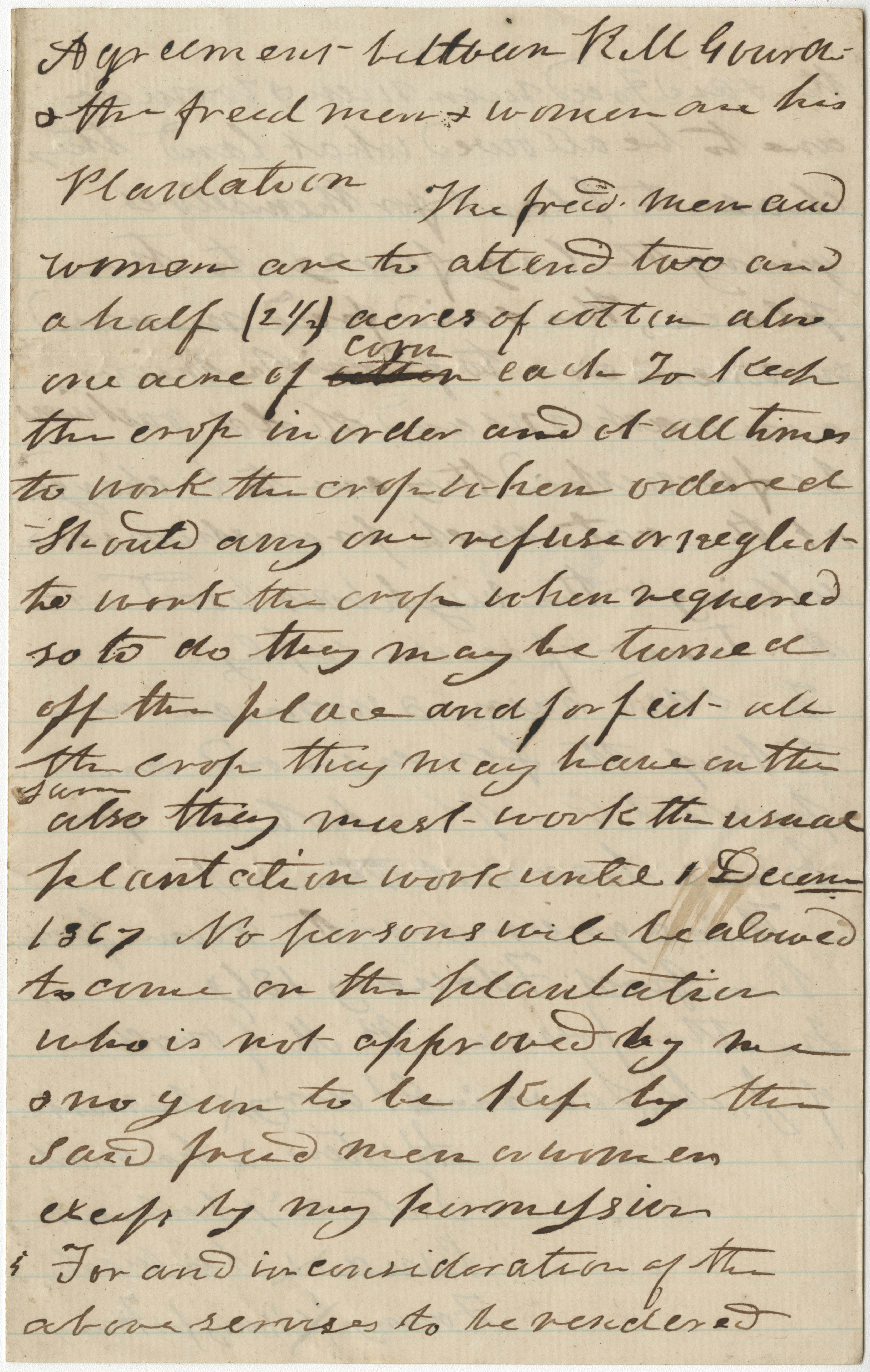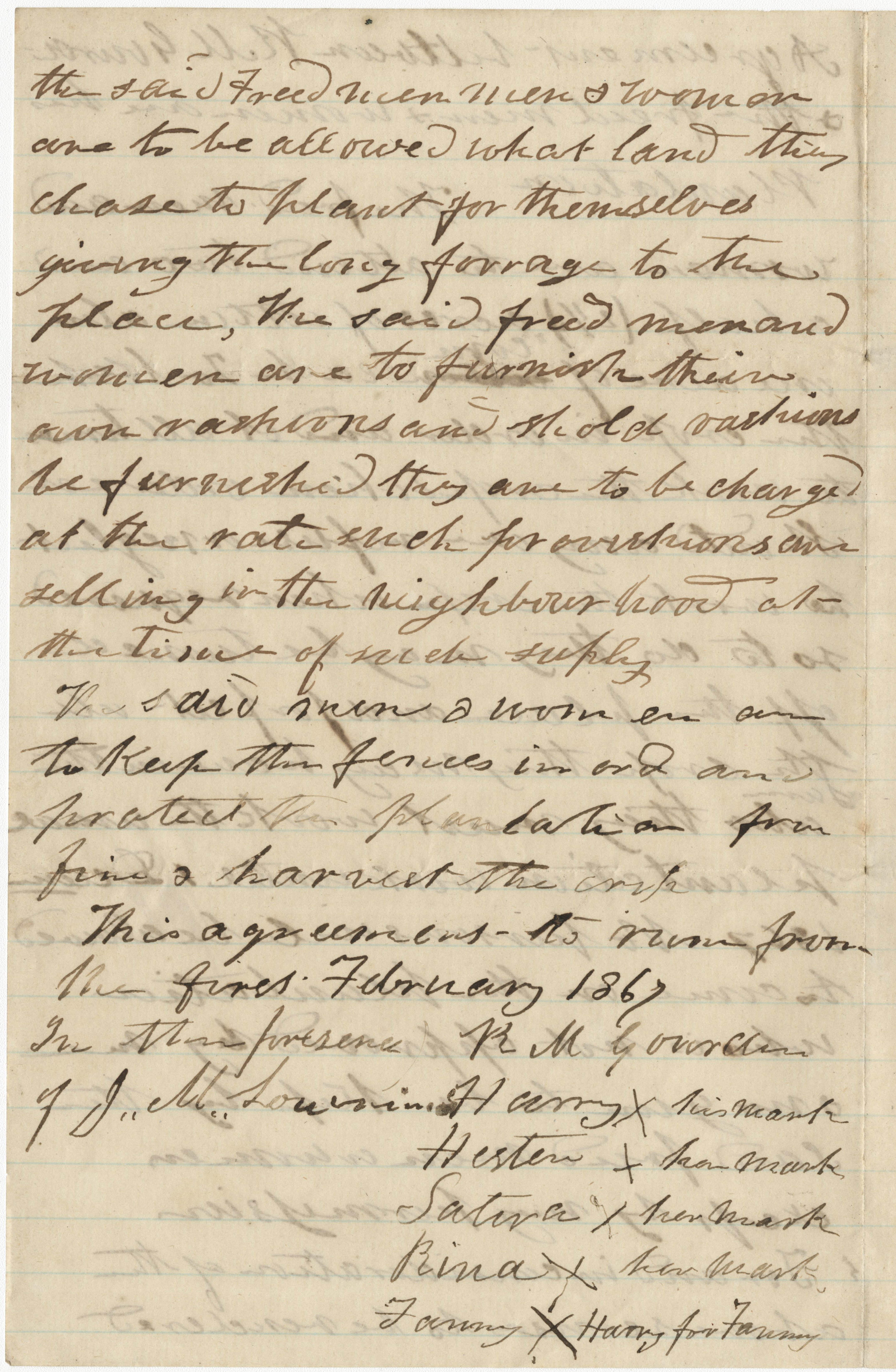In many cases, the terms of labor “agreements” explicitly perpetuated the system of slavery. The contract articulates roles and responsibilities of freed men and women on a cotton plantation owned by R.M. Gourdin in 1867. Harry, Hester, Satira, Bina, and Fanny were “to keep the crop in good order at all times” and “to work the crop when ordered”. Consequences for refusing or neglecting “to work the crop when required” carried the threat of forced removal from the plantation and forfeiture of “all the crop they may have.”
Fears of the White landowner are evident in the limitations embedded in the agreement. Freedom to move and interact with others (“no persons will be allowed to come on the plantation who is not approved by me”) were circumscribed and gun ownership was prohibited.
Robert M. Gourdin papers, the South Carolina Historical Society


